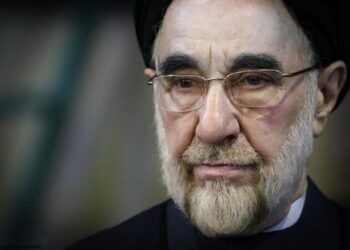 Ezzatollah Sahabi, a major figure in the opposition to both the monarchy and the Islamic Republic for six decades, died Tuesday at the age of 81 in Moddares Hospital in Tehran.
Ezzatollah Sahabi, a major figure in the opposition to both the monarchy and the Islamic Republic for six decades, died Tuesday at the age of 81 in Moddares Hospital in Tehran.
Sahabi had gone into a coma April 30 after a stroke during an operation to repair a bone fracture.
His daughter, Haleh Sahabi, who was sentenced to two years in prison for her involvement in the post-election protests of 2009, was only allowed to visit her father just before he passed away.
Ezzatollah Sahabi had been involved in Iranian politics since the mobilization in 1951 to nationalize the country’s oil industry. In recent decades, he was the head of the Council of National-Religious Activists, an effort to coordinate support for different organizations that oppose the regime from a religious rather than a secular standpoint.
Following the revolution, Sahabi became the head of the Planning and Budget Organization in Prime Minister Mehdi Bazargan’s interim government. He also served as a deputy in the first post-revolutionary Majlis and was elected a representative from Tehran to the assembly that wrote the current Constitution.
But his time as an insider lasted less than nine months. With Ayatollah Khomeini’s refusal to order the release of the US embassy hostages, the entire Bazargan cabinet resigned in November 1979 and Sahabi was once again consigned to the opposition.
He spent time in jail both before and after the 1979 revolution. The Green Voice of Freedom said he spent a total of 15 years in detention during the last 60 years.
The Iranian Association for Press Freedom awarded Sahabi its Golden Plume Award in 2008. Sahabi published the now-banned Iran-e Farda journal in the 1990s, among other media activities.














